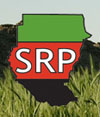
Hello! We’re Kate Aizpuru and Chelsea Davis from the Sudan Radio Project. Before we introduce ourselves, let us thank the Enough Project for giving us the opportunity to appear on Enough Said!
The Sudan Radio Project is a student-run initiative based out of Swarthmore College in Pennsylvania. Every month, we produce a radio show that seeks to educate listeners about Sudan. SRP began producing radio shows under the name Darfur Radio Project in the fall of 2006, when our founders, a group of Darfur activists, realized they didn’t know enough about Darfur to feel comfortable advocating for any particular route to peace. It wasn’t long before we realized that in order to fully understand the conflict in Darfur, we had to try to comprehend Sudan as a whole. So, while our shows initially focused solely on the conflict in Darfur, we have since expanded our reporting to also cover the conflict in South Sudan, economic issues across the country, cultural topics such as music and religion, and more.
Our top priority at SRP is to bring more Sudanese voices into the dialogue about their country. We feel that much of the international community’s discussions on Darfur in particular and Sudan in general, while well-intentioned, are often dominated by non-Sudanese people. While there is undoubtedly a role for such "outsiders," they can sometimes overshadow the efforts and viewpoints of Sudanese people, and we seek to remedy that, at least in part, through our reporting. In fact, one reason that we chose radio as our medium is that it allows us to include the actual voices of the Sudanese people that we interview in each of our shows.
Our October show, "Speaking Out," features four stories about Sudanese people who "are making their voices heard at home and abroad." The first report, which Kate filed, focuses on the controversy surrounding Lubna Hussein and the "Pants Trial." Lubna Hussein is a U.N. reporter who was arrested for violating Sudan’s laws against indecency by wearing trousers in public. Kate noticed that many media outlets like the New York Times and CNN, though they covered the story, didn’t include many (or any) Sudanese people’s opinions or perspectives on the case, instead tending to reduce the incident to yet another example of Islamic extremism clashing with Western values. While she was glad to see the media highlighting Sudan, she hoped to add to that coverage by including commentary from people who were actually from within the country, and had lived the daily realities of Sharia (Islamic Law) themselves. So, she spoke with a Sudanese writer who recently graduated from college, a Sudanese blogger in Malaysia, and a professor who teaches at a women’s university in Omdurman to hear their perspectives on the story and on the Western media’s treatment of it. The Sudanese student, Kizzie, expressed her shock at the incident, noting that she often wears pants and has never felt harassed for it; the blogger, Drima, argued that most Islamic scholars would not support the arrest. We feel that shifting the focus of the discussion about Hussein’s trial to its Sudanese participants enriches our understanding of the context of the arrest, and will better inform international conversation surrounding the functioning of Sharia in Sudan.
Another segment in our October show focused on the Darfur Alert Coalition, a Philadelphia-based activist group. SRP reporter Emma Ambrose chose to examine this group in her story because it was founded, and continues to be run, primarily by Darfuris living in Philadelphia. As Ibrahim Hammid, the Coalition treasurer, describes in the story, "It is very easy to engage Darfuris because most of them live in northeast Philadelphia and we know each other and we have a lot of activities together, social activities, political activities." For the Sudanese we interviewed, the DAC serves both as a hub for their particular community of expatriates, and as a means to include their voices in American political decision-making surrounding their home country.
We hope you’ll visit our website and listen to "Speaking Out," which also includes a piece about two Sudanese doctors who spent Ramadan in Norway, and a profile of Sudanese musician Emmanuel Jal. You can also listen to our past shows, which have covered such topics as political Islam in Sudan, Sudanese folklore traditions, and the ICC warrant against President Omar al-Bashir. If you like what you hear, you can stay updated on upcoming and new shows by becoming our fan on Facebook or following us on Twitter @SudanRadioPrjct. You can also contact us at kate [at] sudanradioproject [dot] org or chelsea [at] sudanradioproject [dot] org with feedback or ideas for future stories. Thanks for listening!

